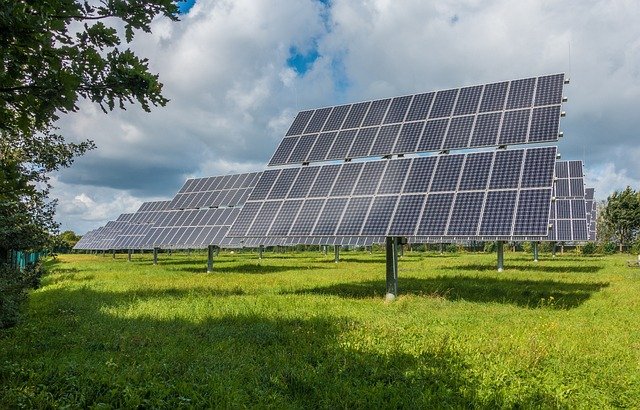AppraisersForum Homeowner Unable to Proven Solar Is Permitted: Solar power has quickly become one of the go-to choices among homeowners seeking sustainable energy sources and to cut energy costs and protect the environment. Unfortunately, as more solar installations emerge on homeowner properties they face new hurdles: showing proof their systems have received all required permission.
On AppraisersForum, there have been stories about homeowners finding themselves caught off-guard when their solar installations lack necessary documentation during an appraisal or sale process. This situation can negatively impact property values, insurance claims and even being able to sell a property altogether. In this comprehensive guide on solar permits we’ll look at their importance, common challenges faced by homeowners and practical steps for solving these problems.
Why Solar Permits Are Necessary
What Is a Solar Permit?
A solar permit is issued by local governing bodies (such as city or county governments), permitting individuals to install and operate solar panels on their properties. Such permits often cover both electrical and structural aspects of installation; in ensuring it complies with codes, safety regulations and zoning laws for proper functioning while remaining compliant to ensure smooth integration into power supply infrastructure on site.
Types of Solar Permits
Electrical Permit: An electrical permit ensures that your solar power system will interact correctly with existing home electrical systems, from wiring and connections, to compliance with local power grid requirements and more.
Structural Permit: A structural permit ensures the solar installation does not compromise the structural integrity of either your home, particularly your roof, in any way. For example, in regions experiencing heavy snowfall this permit ensures your installation can support additional weight.
Zoning and Land Use Permit: Certain regions require solar panel installations of larger or ground-mounted systems in order to comply with property zoning laws while meeting aesthetic considerations as well as ecological goals. Such permits guarantee compliance while upholding neighborhood aesthetics and protecting environmental concerns.
Why Permits Are Crucial for Homeowners
Homeowners need solar permits for multiple reasons:
- Legal Compliance: Permits ensure the solar installation meets all local, state, and national regulations to avoid future legal complications.
- Home Insurance: Certain insurers require proof of permit installation when covering potential damages to your home from unpermitted systems; otherwise they could be seen as unsafe and be considered uninsurable.
- Permitted Solar Systems Increase Property Value: Solar systems approved under regulation increase market value by providing buyers and appraisers the reassurance they need that it satisfies regulatory standards.
Homeowners without proof of proper permits could run into problems with insurers, appraisers, and prospective buyers; which may cause transactions to become complicated while decreasing property values.
Homeowners Have Difficulties Proving Solar Compliance
Local Permit Variability
Every region has different solar permitting standards and requirements can differ significantly between areas. Urban areas might have tighter aesthetic or safety controls while rural regions might be more lax in these regards. Without being aware of all their requirements beforehand, homeowners who rely solely on installers for managing permitting may run into trouble later.
Record-Keeping and Documentation
Solar installations require many documents, from permits and inspection reports to installation records. Without properly keeping track of these records, homeowners may find it hard to provide proof when necessary if an appraiser, buyer, or insurer requires documentation as evidence.
Installation by Unlicensed or Out-Of-State Installers
Homeowners sometimes opt for out-of-state or unlicensed installers due to lower prices or faster installation times; however, such professionals may not fully comply with local permitting regulations and this can complicate matters when the homeowner later attempts to prove compliance or transfer ownership of their installations.
Appraisers Consider Permitted Vs Unpermitted Solar Installations
Appraisers play an invaluable role in assessing home values, and their assessment of solar installations largely hinges upon whether or not the installation has permission from relevant authorities. Here is their approach when conducting such assessments:
- Legal Compliance Check: Appraisers will generally conduct an appraisal to confirm the legal compliance of solar installations by reviewing permits and supporting documentation, for any violations that could impact appraised value of homes with solar installations. Any missing permits could potentially become liabilities that affect home prices as appraisers assess them individually.
- Market Influence and Demand: Appraisers often consider regional demand for solar energy when appraising installations. Appraisers in areas with higher adoption rates for solar may assign more value to permitted installations that recognize market interest; conversely, unpermitted installations in regions with reduced solar adoption may decrease value as buyers may not tolerate risk as readily.
- Effect of Unpermitted Systems on Value: Homes with unapproved systems tend to be valued lower due to potential legal ramifications or costly upgrades necessary for compliance. Appraisers typically reflect this fact when providing valuation estimates by taking account of associated risks associated with such installations.
Steps You Can Take If Unable to Prove Solar Compliance
If your solar system’s compliance cannot be proven, here are steps that may help address the situation efficiently:
- Contact Your Local Permitting Office
The first step should be contacting the permitting office in your local government in order to inquire about records related to your solar system’s installation. In many instances, even if they don’t, records could exist even though you do not. Knowing an approximate installation date allows for easier research and could potentially yield documentation necessary for an appraiser or potential buyer. - Contact Your Original Installer
Solar installation companies typically keep records of permits, installation dates and inspection reports that might help identify who installed your system. Reaching out directly could provide copies of such documentation or tracking down former employees may yield useful records that you require for further research. - Apply for Retrospective Permit
In instances when no original permit exists, certain municipalities offer retrospective permits as an inspection method to make sure systems meet current safety and zoning regulations. While this option can incur fees or require updates in order to meet current safety or zoning standards, it remains an effective means of getting official permitting documents in place. - Prepare for Upgrades or Modifications
If your system doesn’t meet current standards, modifications may be required in order to bring it up-to-code and comply with regulations. These updates could involve upgrading specific components or parts of the system in order to comply. While such updates add an expense for yourself and potential buyers of your installation, these expenditures could help protect its value as well as guarantee it. - Engage Real Estate and Appraisal Professionals
If you’re planning to sell, working with real estate agents and appraisers with expertise in dealing with properties with solar installations may prove invaluable. They can advise how best to present an unpermitted system to buyers, offer potential options for permitting permission, and suggest strategies for mitigating buyer concerns during negotiations.
FAQs About Solar Permits and Compliance Issues
Can’t Locate My Solar Installation Permits
If your permits for installing a solar installation cannot be located, contact both your local permitting office as well as its original installer for help in proving compliance. They may have records which could assist in this effort.
Can I Still Sell My Home Even Though the Solar Panel Is Unpermitted?
Yes, but it may influence its value and buyer interest negatively. Some buyers might ask for reduced pricing in light of an illegal system installed without proper permits, or require you to bring the structure up-to-code before closing on their sale agreement.
Are You Wondering If It Is Possible to Acquire Permit for an Older System?
Yes! Numerous municipalities provide retroactive permitting programs, wherein inspectors inspect existing systems against current standards to see if they comply; if successful, retroactively issued permits can then be issued retroactively.
How Can I Avoid Future Solar Permitting Issues?
To minimize future permitting issues for solar installations, ensure all local regulations are followed during installation; keep complete records of permits and inspections; periodically assess local codes in order to confirm your system remains compliant; check local laws periodically so as to maintain regulatory compliance for your system.
Do Solar Panels Increase Property Value?
On average, yes. When installed legally and allowed by local codes, homes equipped with solar systems typically command higher values and sell faster. But this benefit primarily applies to systems which comply with local regulations and documentation is provided.
Conclusion
Solar power provides homeowners with numerous advantages, from reduced utility costs and property values increases to increased property values. Yet its use comes with responsibility: specifically in regards to procuring proper permits and documentation for solar installations. Navigating through this complex field may seem intimidating at first, yet by taking proactive steps now they may avoid potential headaches in the future. For sellers selling their home with solar installations having complete and verified documentation reassures buyers as well as safeguards its market value.
Solar energy’s increase is more than merely an industry trend; it represents an essential step toward sustainable living. Homeowners who take steps to obtain all necessary permits will reap all the rewards of their solar investments while resting easy knowing they’ve met all applicable local regulations and can enjoy them worry-free.

